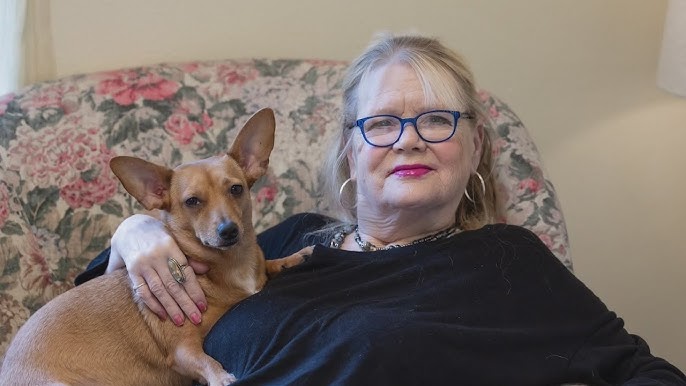PORTLAND, Ore. (KOIN) — A Multnomah County initiative dedicated to helping vulnerable residents find stability has earned national recognition for its work supporting seniors and people with disabilities.
The Homeless Mobile Intake Team, which connects unhoused individuals to long-term care, recently received the National Aging Innovations Award for its success in addressing one of the region’s most pressing challenges.
A Personal Story of Loss and Renewal
For Rebecca Baker, homelessness was a reality she never imagined facing. Once a symphony musician who loved to dance at concerts, Baker saw her life unravel when her mobile home caught fire.
Also Read
“The wiring wasn’t updated, so it burned down. It burned about 10 minutes,” Baker recalled. In the blaze, she lost everything — her antiques, her cherished viola, and her sense of security.
With no insurance or extra savings to cover rent, Baker suddenly found herself without a home.
Finding Support Through the Intake Team
As a former nonprofit case manager, Baker knew where to turn. She connected with the county’s Homeless Mobile Intake Team, which quickly stepped in to help.
“I can’t say enough good stuff about being here. It’s wonderful,” Baker said of her new living situation. “The food is really good. I get services that I never had before.”
Thanks to the program, Baker now resides in a North Portland assisted living facility, where she has regained stability and community.
A Growing Impact
In just three years, the Homeless Mobile Intake Team has helped more than 300 seniors and disabled adults transition from unstable conditions into long-term care.
“Homelessness is not a one-fits-all cookie-cutter,” Baker reflected. “There are many different situations, different life circumstances, personal circumstances.”
The program’s success is due in part to its holistic approach, which recognizes the complex barriers faced by older adults and people with disabilities.
Addressing a Rising Need
Case manager Catalina Cloud emphasized that the need for such services is growing as housing costs soar. “With rents rising and senior homelessness increasing, the demand for these services is only getting higher,” Cloud said.
The team uses a trauma-informed care approach, ensuring that individuals are met with empathy, dignity, and understanding. “The county and the State of Oregon make sure that we always keep that in mind or that we work with that approach,” Cloud added.
Building Stability and Hope
For Baker, the program has been life-changing. She describes her new residence not just as a place to stay but as a true home. “I plan to stay here as long as possible, as long as God sees fit,” she said.
Her story is one of many showing how targeted, compassionate programs can restore stability to those who have lost everything.
Funding and Community Support
The program is funded primarily by county and state taxpayer dollars, but it also relies on nonprofit partners and community contributions. Donations of money, time, and essentials like socks and blankets play an important role in sustaining the work.
As demand continues to grow, advocates stress that long-term investment will be essential. “We want people to recognize the importance of these services and help ensure they are sustained,” Cloud said.
A Model for the Future
With its recent national recognition, Multnomah County’s Homeless Mobile Intake Team is being viewed as a model for other communities confronting the intersection of aging, disability, and homelessness.
For residents like Baker, the impact is deeply personal: the difference between fear and security, between being unhoused and having a place to call home.












